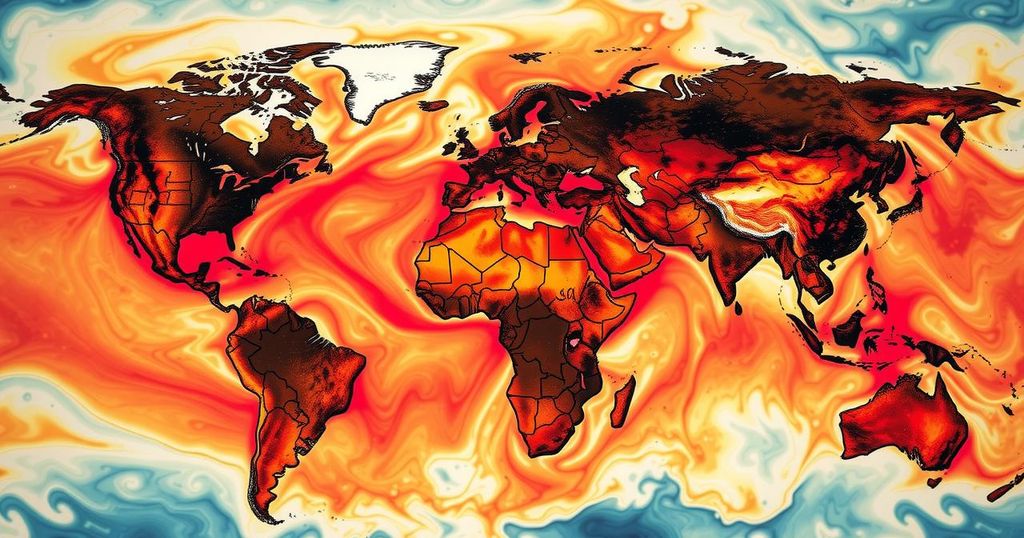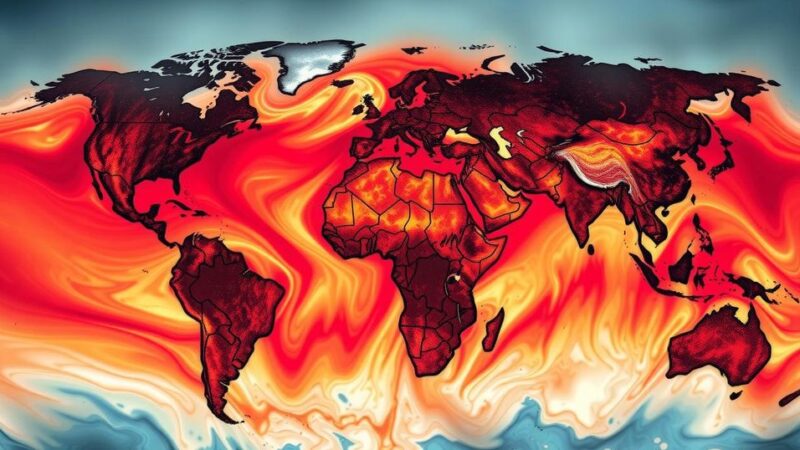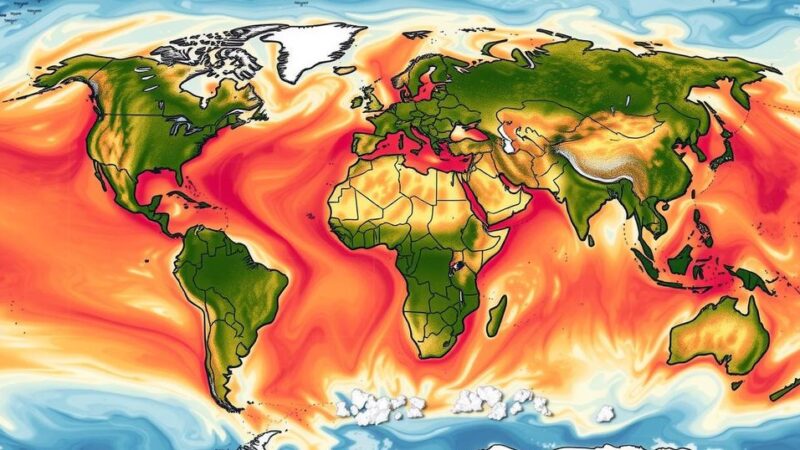In 2024, average global temperatures breached the critical 1.5 degrees Celsius mark for the first time, marking it as the hottest year ever recorded. Official measurements confirm this trend, greatly exacerbated by ongoing climate change impacts leading to severe weather events globally. As scientists struggle to fully understand the rapid increase, the implications for global climate goals remain serious, urging immediate action to address these challenges.
In a clear signal of the escalating reality of climate change, 2024 has officially been recorded as the hottest year on record, with average global temperatures surpassing 1.5 degrees Celsius above pre-industrial levels for the first time. This alarming finding emerges from two credible climate science agencies, highlighting a concerning trend indicating that countries are failing to meet the Paris Agreement’s vital goals intended to curtail global warming. Colin Morice, a scientist from the UK Met Office, emphasized the urgency of the situation, noting, “The amount of time left to avoid eclipsing the goal is now wafer thin.”
The increased temperatures, measured at 1.6 degrees Celsius by the Copernicus Climate Service, have been attributed in part to El Niño, a natural climatic phenomenon known to amplify global warming effects. However, scientists are perplexed as to why temperatures are rising more rapidly than anticipated, leading to ongoing investigations aimed at deciphering this unprecedented climate puzzle. An unprecedented heat spike on July 21, 2024, confirmed the extreme nature of this year’s climate anomalies, correlating with increased natural disasters worldwide, including typhoons and wildfires, which inflicted severe human and economic costs.
The phenomenon denoted as the ‘anti-hiatus’ has drawn parallels to a previous phase of stagnation in global temperatures, challenging scientists to account for recent rapid increases. While a few contributing factors have been identified, such as diminished sulfur aerosol emissions resulting from environmental regulations and the potential effects of climate sensitivity, a significant portion of the temperature rise remains unexplained. As researchers continue to analyze the implications of these changes, they highlight an urgent need for immediate action to address and adapt to the realities of climate change.
Notably, experts caution against reading too deeply into short-term anomalies while underscoring the importance of long-term trends. The recent breach of the 1.5 degrees Celsius threshold, albeit fleeting, serves as a stark reminder of the accelerating pace of global warming and its potential lasting impacts on the planet, raising critical questions about future climate stability. As stated by climate scientist Zeke Hausfather, this recent record “is a big deal” and reinforces the importance of addressing climate challenges with urgency.
The issue of climate change, a pressing global phenomenon, is characterized by the increase in Earth’s average surface temperature due to human activities, primarily the emission of greenhouse gases. The Paris Agreement aims to limit global warming to well below 2 degrees Celsius, with an aspirational target of 1.5 degrees Celsius, necessitating profound shifts in energy systems, conservation practices, and global policies. Noteworthy is the recent confirmation from independent climate agencies that 2024’s temperatures have not only indicated the highest average temperature recorded but have done so amidst increasing incidences of severe weather events linked to climate change, thus raising alarm among scientists about the trajectory of our climate goals.
The rising global temperatures in 2024 not only mark an unprecedented moment in climate history but also underline the urgency for corrective action on a global scale to adhere to the targets set by the Paris Agreement. With multiple contributing factors complicating the climate narrative, the scientific community faces the dual challenge of understanding these changes while advocating for decisive measures to mitigate future temperature increases. The clear trend of rising heat reaffirms the critical need for immediate and sustained action towards climate resilience.
Original Source: www.insurancejournal.com







